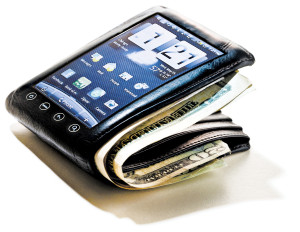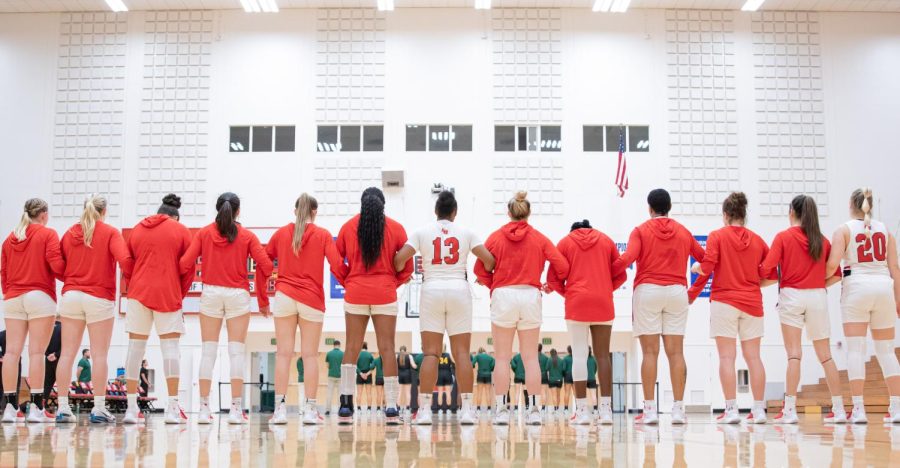
Last week the Federal Communications Commission announced new guidelines for the wireless industry that will potentially benefit 97 percent of cell phone users in the United States.
The new voluntary guidelines will require wireless carriers to create a free alert system to warn cell phone users as they approach plan limits, are about to incur international roaming charges not covered by their plans, and make clearly available monitoring and cutoff systems for cell phone plans to prevent them from being charged extra for cell phone use.
The agreement was reached between the FCC, the Consumers Union, and the CTIA-The Wireless Association, which represents carriers such as Verizon, T-Mobile, AT&T and Sprint, in order to reduce what the FCC has identified as “bill shock” on consumers.
“Bill shock” simply refers to the shock customers undergo upon receiving a wireless bill that is much higher than their monthly plan details after unwittingly going over their limits on texts, voice, data, or from international roaming.
This is a problem many college students face as they struggle to deal with class schedules that make it difficult to track bills for the communication they depend on.
“It’s kind of hard [to track bills] because sometimes you’re on your family plan—it’s linked together—so you’ll never know exactly when it’s over and when it’s not,” said CSU East Bay sophomore Eugenia Tso.
Tso racked up approximately $100 on top of her family’s monthly bill after texting beyond the limits of their AT&T plan.
For students who rely on their family plans or share plans with other students, it is often difficult to tell when the plan is approaching the overage threshold. Even worse, the cost of upgrading to a plan that includes more voice and texting may not be something that everyone within the plan can agree upon.
Even though bill shock affects many people, there are still those who can afford unlimited plans and avoid the hassle of tracking their plan usage.
“I don’t have that [bill shock] because I have unlimited messaging and then the data is 2G but I use Wi-Fi at home and at school,” said Vandhanjit Kaur, who is an alumna from CSUEB and works at the University Bookstore.
Still, the Consumers Union reported that about one in five Americans received unexpected bills on their cell phone plans during 2010.
In an address to the Brookings Institution in Washington, D.C. that announced the guidelines, FCC Chairman Julius Genachowski highlighted stories of people receiving bills as high as $34,000 for international roaming.
Genachowski recounted the following at his address: “At an FCC forum highlighting the problem [bill shock], I met a woman who was shocked by an over $34,000 cell phone bill for international data and texting charges incurred while visiting her sister in Haiti after the 2009 earthquake. I also met a man who got an $18,000 bill after his free data downloads expired without warning. After that event, a business executive emailed to describe how he had incurred $2,000 in charges during a recent overseas trip, despite buying an ‘international plan’ before the trip.”
The New York Times reported that wireless companies have generally resisted regulations on how they communicate with their customers, but rising consumer dissatisfaction with enormous overage bills may have been the tipping point.
Verizon Wireless does already provide some of the alerts required in the voluntary guidelines that came in lieu of federal mandates at the request of wireless companies.
Other providers who do not already provide these services will have to set up alerts for at least two of the following within 12 months: texts, voice, international roaming, and data. All four must be included in an alert system within 18 months.
If companies do not comply with the voluntary guidelines within the given timeframe, the FCC has threatened to take action on the industry to ensure adherence to the plan formally entitled the “Wireless Consumer Usage Notification Guidelines.”
President Barack Obama had the following to say on the new guidelines: “Far too many Americans know what it’s like to open up their cell phone bill and be shocked by hundreds or even thousands of dollars in unexpected fees and charges.
“Our phones shouldn’t cost us more than the monthly rent or mortgage,” continued Obama. “I appreciate the mobile phone companies’ willingness to work with my Administration and join us in our overall and ongoing efforts to protect American consumers by making sure financial transactions are fair, honest and transparent.”
The bill should have a positive impact on students who have gained a rather notorious reputation as incessant texting machines. For the more modern college student, that includes data plans on smartphones like the iPhone.
“I would have told my roommate to not go over his data plan or take his phone from him for a while,” said Iverson Krank on what he would do if he had been warned by the alert system. Krank is a CSUEB student who was charged approximately $40 more in overage charges on his AT&T iPhone data plan that he shares with other students.
While $40 may not sound like a lot, for many college students it can be the difference between an enjoyable weekend and one stuck at home.
If you want to get more exact, $40 is five hours working at the California minimum wage, a night out at the movies for two, almost a CSU application fee, and just too much money.
Even though the plan put forth by the FCC may cause difficulties for wireless carriers that are already going through changes as more consumers rely on devices with data plans, the guidelines should ultimately benefit consumers and save them thousands of dollars in overage fees.










